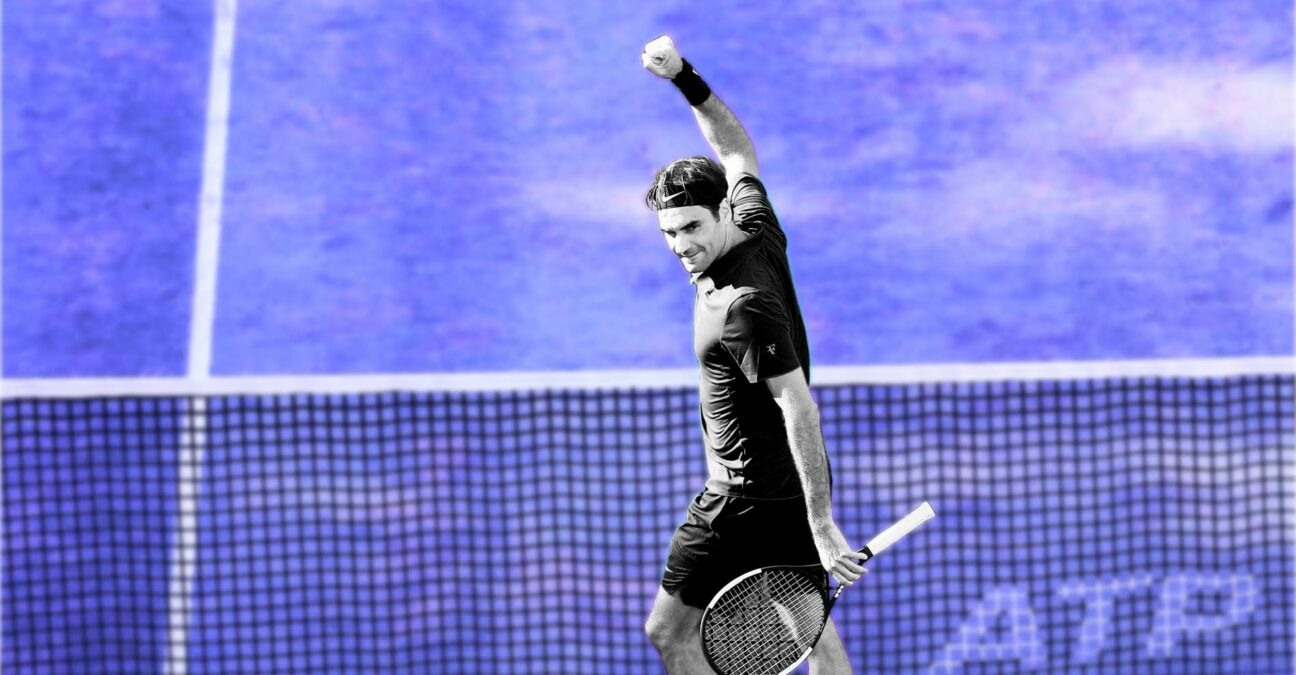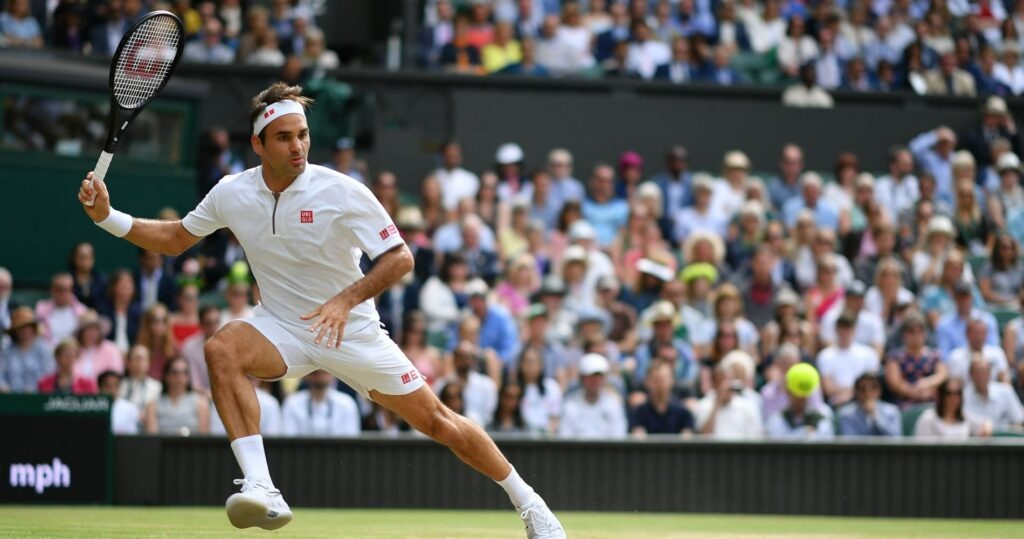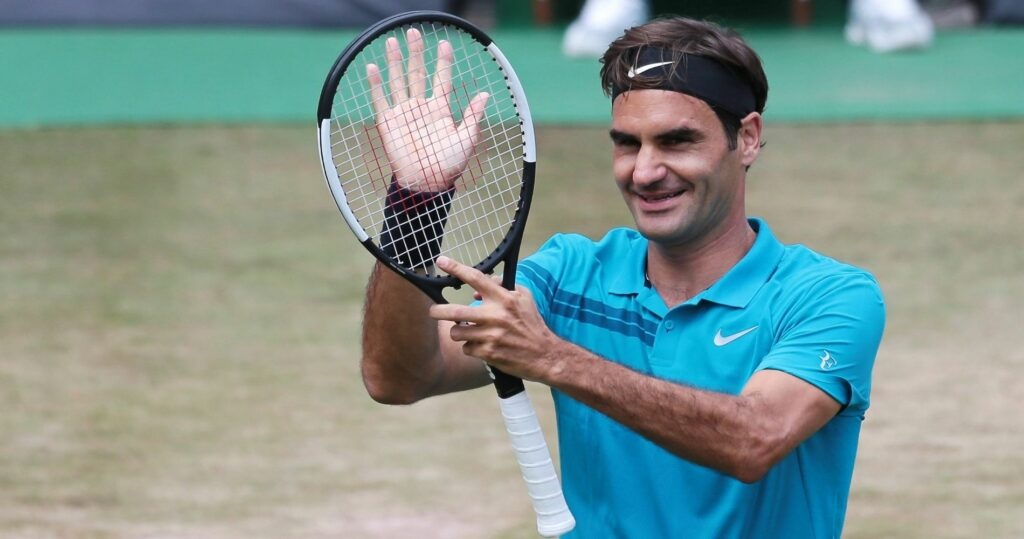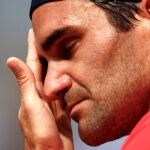June 18, 2018: The day Roger Federer beat his own record to become the oldest player to claim the world No 1 ranking
Every day, Tennis Majors takes you back in time to relive a tennis event which happened on this specific day. On this day in 2018, Roger Federer beat his own record of the oldest player to claim the world No 1 spot
 Federer_otd_06_18(1)(1)
Federer_otd_06_18(1)(1)
What happened exactly on that day
On this day, June 18, 2018, after having claimed his 98th ATP title in Stuttgart on the previous day, Roger Federer beat his own record to become the oldest player to claim the world No 1 ranking, at the age of 36 years and 10 months. It was the second time Federer had risen to No 1 in 2018. Following his amazing return to form in 2017, the Swiss had originally reclaimed the top ranking in February of 2018, more than five years after he had last been No 1.
The facts: The Swiss claimed his 98th ATP title in Stuttgart
Roger Federer, the Swiss maestro, born in 1981, was 36 years old in June 2018. He had dominated the sport in the 2000’s, especially between 2004 and 2008, conquering 12 Grand Slam titles before Rafael Nadal challenged him for the world No 1 spot. In 2009, after three lost finals against his Spanish nemesis, he eventually triumphed at Roland-Garros, achieving a career Grand Slam that made most tennis pundits consider him to be the greatest player of all time.
In 2011, Novak Djokovic became the No 1-ranked player in the world. Federer, who had claimed 16 Grand Slam titles between 2003 and 2010, went through several years of doubt after his success at Wimbledon in 2012. In the next eleven Grand Slams, he reached the final only once, at Wimbledon 2014, where Djokovic edged him in a five-set battle, and he had been stopped three times in the semi-finals. The Serbian then halted Federer’s progress in the final twice in 2015, at Wimbledon and at the US Open.

In 2016, Federer had to put an early end to his season due to knee issues, after losing in the semi-final at the All England Club. As Federer had not claimed a Grand Slam in four years, many experts now thought he was not capable of triumphing in major events anymore, due to age. They were wrong: after a six-month hiatus, the Swiss made a spectacular comeback in 2017, winning the Australian Open after edging Nadal in one the most anticipated matches in tennis history (6-4, 3-6, 6-1, 3-6, 6-3). Surfing the wave, the Swiss claimed titles in Indian Wells and Miami, edging Nadal two more times, and after skipping the clay-court season, he claimed a 19th Grand Slam title at Wimbledon (defeating Marin Cilic in the final, 6-3, 6-1, 6-4).
In 2018, after Federer successfully defended his title in Melbourne (defeating Cilic once again in the final, 6-2, 6-7, 6-3, 3-6, 6-1), he was in position to become world No 1 again, for the first time in more than five years. To achieve that feat, the Swiss made a rare appearance at the Rotterdam Open, which he won (defeating Grigor Dimitrov in the final, 6-2, 6-2), becoming the oldest player to ever sit on top of the ATP rankings, on February 19. Federer’s achievement propelled him past Andre Agassi’s record (the Las Vegas Kid had been world No 1 at the age of 33, in 2003).

Federer’s hold on the Tour didn’t increase in the following weeks. At Indian Wells, he was defeated by Juan Martin del Potro in the final after he blew three match points (6-4, 6-7, 7-6). In Miami, where he was the defending champion, he was eliminated in the first round by Thanasi Kokkinakis (3-6, 6-3, 7-6), and as a consequence, he lost the world No 1 spot to Nadal, after only six weeks. After this loss, the Swiss announced that he was once again going to skip the clay-court season, only to reappear in Stuttgart.
Most of the experts once again wondered if the Maestro would be sharp enough after such a long time away from competition, and during his first round, when he lost the first set against Mischa Zverev, his fans had reasons to be worried. However, Federer defeated the German (3-6, 6-4, 6-2), and then prevailed against Guido Pella (6-4, 6-4), Nick Kyrgios (6-7, 6-2, 7-6) and Milos Raonic in the final (6-4, 7-6). Thanks to this result, he reclaimed the top spot, beating his previous record of the oldest world No 1 in tennis history, at nearly 37.
The 20-time Grand Slam champion was not particularly thrilled by this achievement, which was sealed after his semi-final win against Kyrgios.
“It’s nice that it happened but I have other problems,” he said. ”I hadn’t played in three months, it’s on grass, it’s fast and difficult to get so far here. Still, I’m delighted to have achieved it.”
Federer was already focused on Wimbledon, where he seemed to have good chances to claim a ninth title.
What next: Federer lost the spot one week after in Halle
In the following week, in Halle, Federer would be defeated in the final by Borna Coric (7-6, 3-6, 6-2), and he would lose the top spot once and for all after only one week. At the time, he set an all-time record of 310 weeks spent as world No 1. The record would be surpassed by Novak Djokovic in 2021, who also took the spot as oldest-ever ATP world No 1 in April 2024.
An even bigger disappointment would happen at Wimbledon, where Federer would be eliminated in the quarter-finals by Kevin Anderson (2-6, 6-7, 7-5, 6-4, 13-11), after having blown a two-set lead, as well as a match point.









